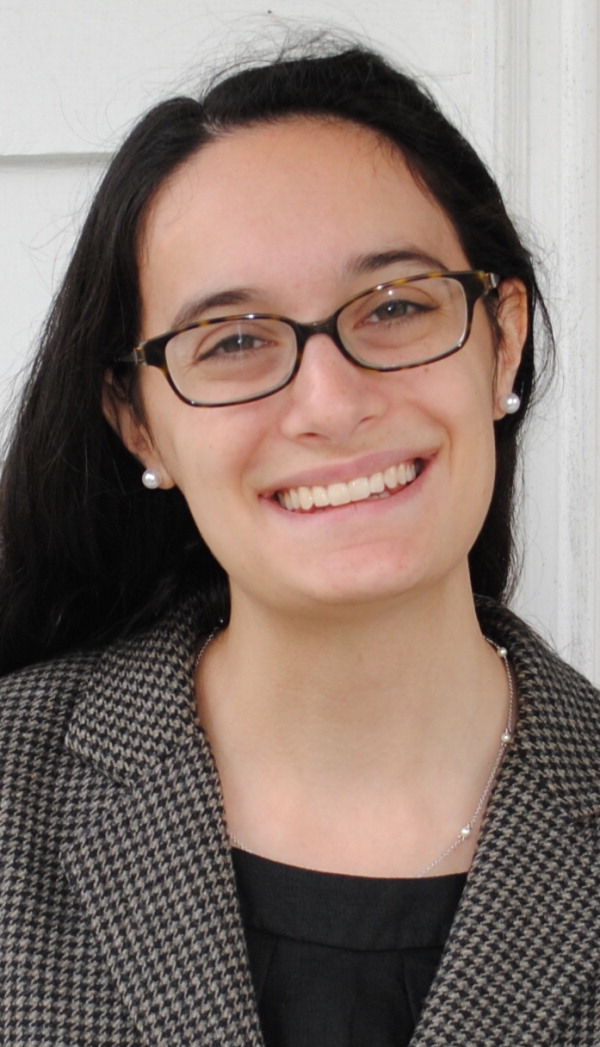By Philip Sean Curran, Staff Writer
Isabel Kasdin got her first job with the Historical Society of Princeton as a volunteer docent nine years ago when she was a 15-year-old high school student seeking to fulfill a public service requirement.
Today, she runs the place.
Ms. Kasdin, who goes by the nickname Izzy, took over the reins on Wednesday as executive director of the Historical Society. She is in charge of an organization with three full-time and up to five part-time employees and an annual budget of roughly $500,000.
The society had been looking for a permanent leader since its previous director, Erin Dougherty, left at the end of January after nine years to take a job at a museum in Florida. The search had been going on since that time, with Ms. Kasdin offered the job.
“She was the best candidate,” said Historical Society President Scott Sipprelle, who led the search committee and served as interim-director, on Wednesday. “We weren’t looking for old, young or anywhere in between. We were just looking for the best candidate.”
From her office at the society museum and offices at Updike Farmstead along Quaker Road, Ms. Kasdin described herself as “passionate” about public history. She said she is interested in doing more community-based projects and working with other groups in town.
“We’re so lucky to be in a community that has such a vibrant cultural life and so many really active community organizations and really engaged community members,” Ms. Kasdin said.
She climbed the ladder at the historical society; she stayed involved with the organization as a college student at Princeton University and then took a job as a part-time research assistant and then curator.
“Every possible role one could have, I think, in a museum, I had here at the historical society. So it feels very much appropriate to come into this role at this organization,” said Ms. Kasdin, 24. “I think that there isn’t as steep a learning curve for me because I am so familiar with the organization.”
In promoting someone two years removed from being a college undergraduate, the historical society found in Ms. Kasdin a combination of youthful energy with the seasoned knowledge about how the society works. Her job will be to grow an organization that celebrates the past into something appealing to a 21st-century-audience.
“Historical societies tend to have a connotation of being old,” Mr. Sipprelle said. “And we want to be young, we want to be contemporary. We think we have a very important job to do. But a big part of that is increasing the engagement of our audience.”
As a millennial, she said history museums can do “a lot” better drawing people of her generation through their doors.
“The people of my generation who are working for museums, I think it’s incumbent upon us to talk to our friends and our peers and determine what it is they want to see in museums,” she said. “And I think that’s another perspective that I bring, probably.”
Founded in 1938, the historical society has thousands of maps, books, objects, photographs and other items in its holdings from Princeton’s rich past. Ms. Kasdin sees room for that collection to grow.
“Our collection does not necessarily represent the communities that are in Princeton today,” she said. “We can do a lot of work to try to bring up the materials that we have up to the demographics of Princeton as they are right now. I would love to be able to collect more from the Hispanic community of Princeton that’s growing.”
“We think we’re a small but mighty organization,” Mr. Sipprelle said. “This is a town with incredible historical and cultural density. And we’re the keeper of that flame as it were.”
Princeton is a community that Ms. Kasdin has been a part of most of her life, having moved with her family to town 17 years ago. She went to Princeton High School and stayed local for college.
Princeton University orange and black runs in her blood. Her father and mother, Jeremy and Rakefet, graduated from the university in 1985. The family relocated from northern California to Princeton in 1999 when he took a job as a professor at the university, where he still works. She and her twin sister, Alexandra, both graduated from the university in 2014.
Ms. Kasdin earned her bachelor’s in history from Princeton and a master’s from the University of Cambridge in archeological heritage and museums.

